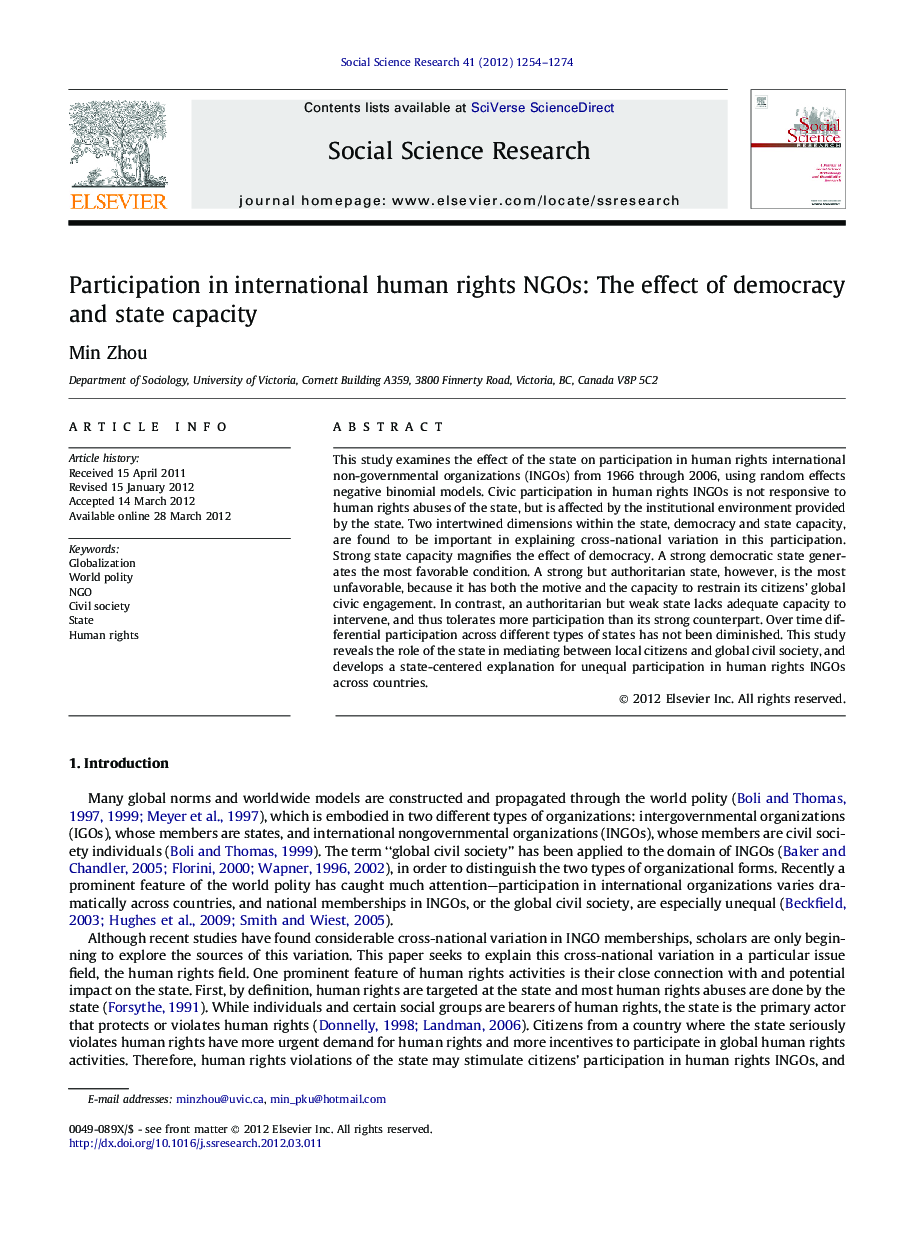| Article ID | Journal | Published Year | Pages | File Type |
|---|---|---|---|---|
| 955948 | Social Science Research | 2012 | 21 Pages |
This study examines the effect of the state on participation in human rights international non-governmental organizations (INGOs) from 1966 through 2006, using random effects negative binomial models. Civic participation in human rights INGOs is not responsive to human rights abuses of the state, but is affected by the institutional environment provided by the state. Two intertwined dimensions within the state, democracy and state capacity, are found to be important in explaining cross-national variation in this participation. Strong state capacity magnifies the effect of democracy. A strong democratic state generates the most favorable condition. A strong but authoritarian state, however, is the most unfavorable, because it has both the motive and the capacity to restrain its citizens’ global civic engagement. In contrast, an authoritarian but weak state lacks adequate capacity to intervene, and thus tolerates more participation than its strong counterpart. Over time differential participation across different types of states has not been diminished. This study reveals the role of the state in mediating between local citizens and global civil society, and develops a state-centered explanation for unequal participation in human rights INGOs across countries.
► This study examines the effect of the state on participation in human rights INGOs. ► The interaction of democracy and state capacity explains cross-national variation in this participation. ► Differential participation patterns across regime types are identified. ► This study reveals the role of the state in mediating between local citizens and global civil society.
